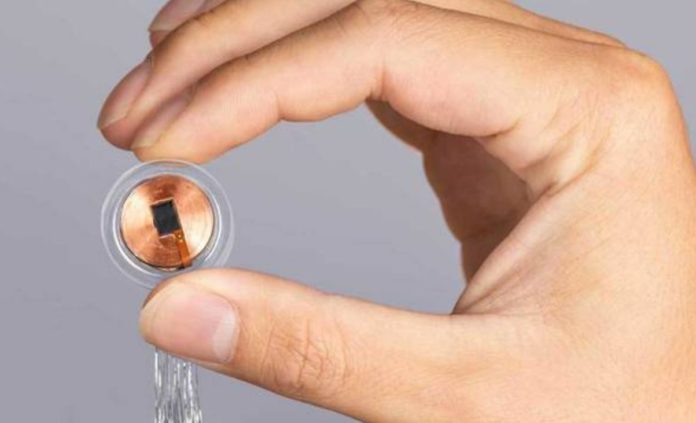Nowadays, there are companies that send you home subcutaneous implants to be able to open doors or unlock your computer without using a password. But the future brings much more interesting things
Conspiracyists, deniers and associations of brothers-in-law on an international level have been warning for months that covid-19 vaccines come with a built-in chip whose function is to control the world’s population. It does not matter that no evidence has been found to confirm it, for them it is a matter of faith and against that, there is no ‘fact check’ worthwhile. that microchips have long been implanted in our body, but now there are several companies that market them and even take them to your home.
- Scientists in Fear of This New Predator From Red Sea Eating Native Species in Mediterranean
- Does This Mean We Stopped Being Animal and Started Being Human Due to ‘Copy Paste’ Errors?
- The One Lifestyle Choice That Could Reduce Your Heart Disease Risk By More Than 22%
- Aging: This Is What Happens Inside Your Body Right After Exercise
- Immune-Boosting Drink that Mimics Fasting to Reduce Fat – Scientists ‘Were Surprised’ By New Findings
The vast majority of companies that sell subcutaneous chips use NFC and RFID radio wave information transmission technologies. The first is the same one that your mobile uses to make payments wirelessly, while the second is the one used on cards or key rings that give access to many business buildings. RFID will also be familiar to you because it is the technology used in the implants worn by dogs to identify them in case of loss.
In reality, all these systems work in a very similar way and require being very close to the reader with whom you want to interact. If what you are looking for is population control, there are much more efficient tracking systems that are already being used in a massive way around the world. They are devices connected to GPS that we voluntarily carry everywhere we go, our mobile phones.
The implants being marketed for now are not excessively small. According to experts, those for human use must be about 10 millimeters long and two millimeters wide so that they can be read correctly through our skin. And the chipmakers apply them with syringes of five millimeters in diameter, a terrifying size compared to the 0.8 millimeters measured by those recommended by the authorities for the supply of the covid vaccine.
The American company Dangerous Things sells a kit of three chips that include the main technologies of NFC and RFID for $ 270. In addition, it comes with the necessary equipment for you to inject it yourself at home if you do not want a professional to do it, although the latter would be recommended, according to the company.
There are others, such as the German I Am Robot or the British Bioteq, which sell NFC and RFID implants with prices ranging from Euro 78 – the most basic option – to 190 that already include a doctor installing it and the local anesthesia shot so that it doesn’t hurt. Although the company assures that the pain of the implant is similar to that of putting on an earring and therefore the possible health risks as well. Its chips are controlled via mobile and have up to 10 years of warranty.
The practical uses of these chips are many, ranging from opening doors without using your hands to unlocking your computer without having to remember your password. In Sweden, thousands of people have one and already pay at vending machines and validate their train tickets with them. But this technology does not seem to contribute anything different to what you can already do with your mobile or with a smart bracelet. Also, the same companies admit that their products are not officially certified for use on the human body, so if you’re squeamish like I am, you won’t see much sense.
- Scientists in Fear of This New Predator From Red Sea Eating Native Species in Mediterranean
- Does This Mean We Stopped Being Animal and Started Being Human Due to ‘Copy Paste’ Errors?
- The One Lifestyle Choice That Could Reduce Your Heart Disease Risk By More Than 22%
- Aging: This Is What Happens Inside Your Body Right After Exercise
- Immune-Boosting Drink that Mimics Fasting to Reduce Fat – Scientists ‘Were Surprised’ By New Findings
The prodigious chips
In contrast to these rudimentary chips, which are used mainly to exchange very basic information, there are other implants, such as the Brain-Computer Interface (BCI), which herald a much more exciting future by directly connecting the machines to our brain.
There are several companies investing millions of dollars in BCI, the best known is Neuralink, by Elon Musk, although it is not the only one. Kernel, an American startup led by Bryan Johnson, has been innovating in the neurotechnology sector since 2016. A field that is still in its infancy and that has significant obstacles to overcome. As this article points out, it is not clear how we will be able to ‘write’ instructions in the brain or how effective and durable they will be. In addition, there is also the melon of how we are going to solve the ethical implications that a technology of this caliber entails.
Even so, the BCI promises very interesting applications. In theory, it will have the ability to help the brain correct brain or neurological injuries and its future applications could help expand human brain capacity and help us communicate with machines, not our language, which according to Musk is much slower and inefficient but on your own. This would give us the possibility of competing with future artificial intelligence and would open another chapter in this era that comes from Novacene.
